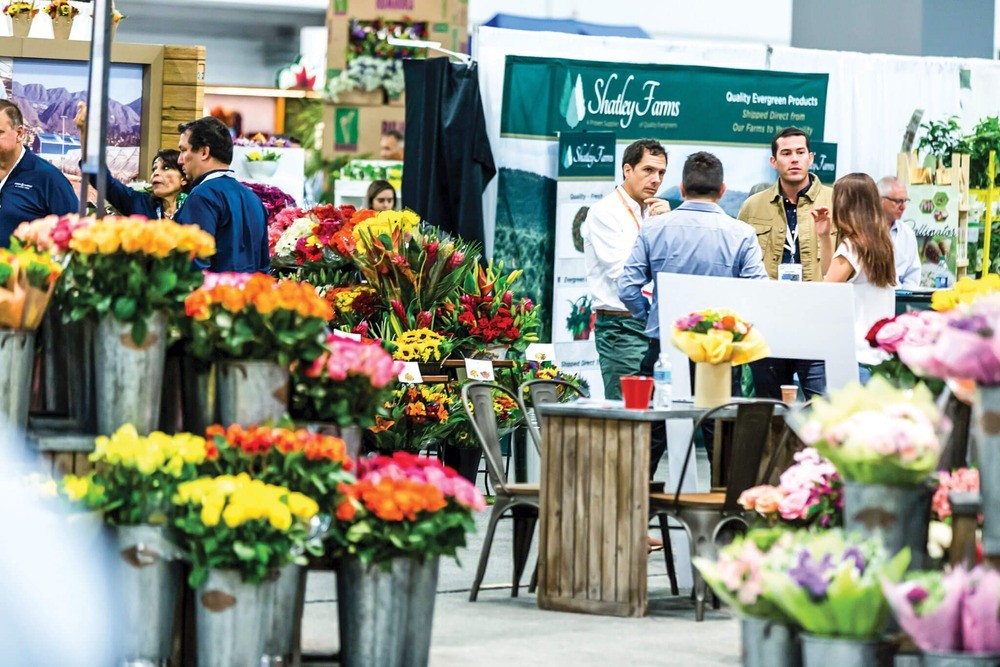10 Proven Ways That Artificial Intelligence Will Have a Blossoming Impact
Author: Cindy Hanauer
Artificial Intelligence (AI) refers to the development of computer systems that can perform tasks that typically require human intelligence. These tasks include learning, problem-solving, language understanding, and perception. AI can be categorized into narrow or weak AI, which is designed for a specific task, and general or strong AI, which would have human-like cognitive abilities across various domains.
The integration of Artificial Intelligence (AI) in the flower and plant industry has revolutionized various aspects, from cultivation to customer experience. AI technologies offer innovative solutions, enhancing efficiency, sustainability, and overall growth within the industry.
AI in Cultivation
1. Precision Agriculture
AI plays a crucial role in optimizing cultivation processes. Sensors and drones equipped with AI algorithms gather data on soil health, moisture levels, and plant conditions. This allows for precise and data-driven decision-making, optimizing resource usage and crop yields.
2. Smart Greenhouses
AI-powered smart greenhouse systems monitor and control environmental conditions. They adjust factors such as temperature, humidity, and light to create an optimal growth environment for plants. This not only improves yield but also ensures the quality of the flowers and plants.
3. Plant Disease Detection
AI algorithms analyze images of plants to identify signs of diseases or pests. Early detection enables prompt intervention, reducing the need for pesticides and minimizing crop loss. This benefits both the environment and the economic sustainability of the industry.
4. Recommendation Systems
AI-driven recommendation systems assist customers in selecting the right plants based on their preferences, location, and environmental conditions. These systems leverage machine learning to understand customer behaviors, offering personalized suggestions for optimal plant choices.
AI in Supply Chain
5. Supply Chain Optimization
AI aids in streamlining the supply chain, from production to distribution. Predictive analytics help in forecasting demand, optimizing inventory, and minimizing wastage. This ensures that flowers and plants reach consumers at the peak of freshness.
6. Inventory Management
AI-driven inventory management systems predict demand for products and optimize stock levels accordingly. By analyzing historical sales data, seasonal trends, and external factors such as weather patterns, AI algorithms help supermarkets maintain adequate inventory levels while minimizing excess stock and wastage.
AI in Customer Connection
7. Customer Engagement
Virtual assistants and chatbots powered by AI enhance customer engagement. They provide information on plant care, answer queries, and offer personalized tips. AI-driven applications also enable customers to virtually visualize how certain plants will look in their homes, enhancing the online shopping experience.
8. Marketplace Insights
AI algorithms analyze market trends, customer preferences, and competitive landscapes. This data-driven approach helps businesses make informed decisions, develop effective marketing strategies, and stay ahead in a dynamic market.
9. Sustainability Efforts
AI contributes to sustainability by optimizing resource usage, reducing waste, and promoting eco-friendly practices. Smart irrigation systems, for example, ensure that plants receive the right amount of water, minimizing water wastage.
10. Optimized Product Placement
AI algorithms analyze shopper behavior and aisle traffic patterns to optimize product placement within the store. By strategically positioning products based on consumer preferences and purchasing habits, supermarkets can increase visibility and optimize sales.
In conclusion, the incorporation of AI in the flower and plant industry brings forth a new era of efficiency, sustainability, and customer-centric experiences. As technology continues to advance, we can expect further innovations that will shape the future of this flourishing industry.





